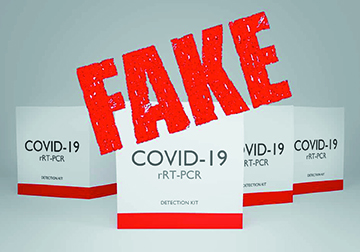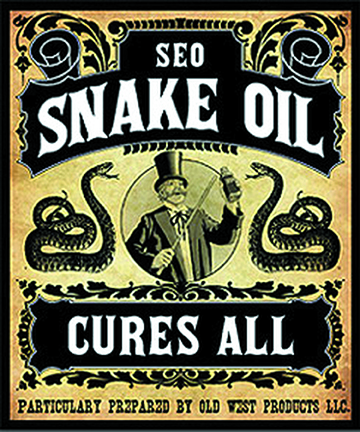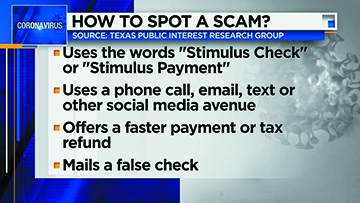“Fear is the mind-killer. Fear is the little-death that brings total obliteration.” — Frank Herbert

by Luke Schmaltz
In the midst of every crisis, there are those who rise to the occasion to meet the inherent challenges head-on. Today, such steadfast determination can be seen in the actions of frontline healthcare workers persevering through unprecedented circumstances.
Meanwhile, amid untold stress and confusion, there are scavenger-minded shysters who slink to the sidelines to wait for a distressed populace to reveal a new set of weaknesses upon which to prey.
A Climate Of Chaos

Currently, many people are preoccupied with the latest socially engineered concerns sparked by the Covid-19 pandemic. These include the health risks of becoming sick, how to prevent infection, what to do if you get sick and of course — the crippling panic that comes with the so-called impending collapse of the financial system. What makes these issues so dangerous is the deluge of misinformation and disinformation constantly spewed forth from just about every active media outlet. The ideological divide has somehow made politically motivated pundits the mouthpiece of what is largely a healthcare issue. The result is mass confusion, and the overarching revelation that the people “in charge” are incapable of agreeing on a clearly-defined set of fact-driven protocols.
The Trap Is Set

These circumstances have inspired a windfall of new frauds, swindles and rackets that are currently descending upon the unwitting and the confused like a swarm of electronic locusts. This pestilence is largely presenting itself through electronic channels — permeating the average victim’s technological bubble in the form of fraud-based phone calls, text messages, emails, social media posts and websites claiming to offer immediate solutions to abnormally urgent problems. Anxiety is winning over rationale, prompting desperate people to engage with offers and propositions that may seem too good to be true — because they are.
Bogus Services
People on Medicare or Medicaid, those with diabetes and individuals over 60 are particularly vulnerable to being targeted by scammers offering fake Covid-19 tests. The Colorado Department of Regulatory Agencies reports that online advertisements and telephone solicitations are offering free testing — all the consumer has to do is provide personal information and health insurance details. Once divulged, the “vendor” disappears, and the scammers use the data provided to engineer identity theft and gain access to personal finances. Other predatory initiatives involve people contacting those in the above categories offering to help them with grocery shopping, retrieving prescriptions and other important errands with the stipulation that they provide their credit card information up front. The money disappears and the service is never rendered.
Bad Medicine

Social media channels, email accounts and cell phone text messaging applications are being hijacked to deliver offers claiming to treat and cure the Coronavirus. Legitimate medical research professionals the world over have concluded that there is no definitive, 100% reliable cure and that no vaccine yet exists. Although there are treatments that have shown some promise and researchers are working to develop a way to inoculate against the virus — these efforts are still awaiting definitive results. In spite of the facts, scammers claiming to have the magic bullet that will execute fears of falling ill are bilking the easily-duped out of their money. These schemes feature snake oil in the form of tinctures, teas, essential oils, colloidal silver and other flim flam potions that will cure you of the disease and bolster your immune system.
Stimulus Check Liaisons

Young people and older folks alike — especially those who have been laid off from work or lost their jobs — are awaiting their share of the multi-trillion-dollar stimulus package which was recently passed by Congress. Scammers claiming to work for the IRS are contacting people via phone call, text message and email. They are offering to investigate the status of an individual’s stimulus check and to help usher the process along so the person can access the money sooner. Those who fall for the ruse are prompted to divulge their Social Security number and bank account information among other personal data which allows the scammers to steal their identities and what little money they may have in a savings account or other monetary fund.
It is very important to note that, according to www.irs.gov, “The IRS initiates most contacts through regular mail delivered by the United States Postal Service … the IRS will call or come to a home or business when a taxpayer has an overdue tax bill, to secure a delinquent tax return or a delinquent employment tax payment …” Since stimulus checks are not a tax issue, no contact by the IRS other than through the mail should ever be expected. Also, these phishing scams are prevalent across social media, and merely clicking on them from a hardwired desktop computer can allow unauthorized access to your network, your passwords and ultimately to your money.

What You Can Do
You can guard your personal information with hypervigilance and if you choose to engage with a company for any services, use caution and do some research to make sure they are legitimate. Better yet, you can choose to trust only those you know such as coworkers, relatives and neighbors when it comes to asking for help with day-to-day tasks. Meanwhile, you can also stay updated on newly-emerging scams by visiting www.StopFraudColorado.gov and help others by reporting any scams you encounter to the above department’s hotline at 1-800-222-4444 and to the Denver District Attorney Consumer Fraud Hotline at 720-913-9179. In short, there are currently no at-home tests and when there is a definite cure and a proven vaccine, they will be unavoidable headline news items and not secret elixirs from the online flim flam man. Plus, anyone you don’t know who is offering to assist you, is most likely aiming to do so by only helping you part with your money.
